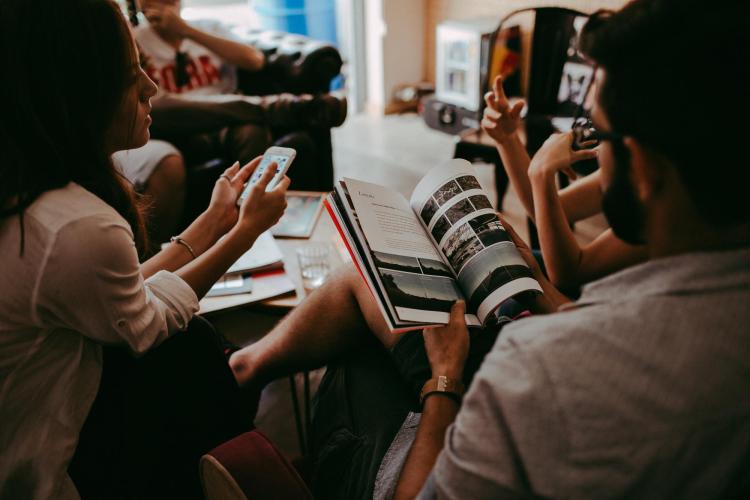Is substance use affecting your relationships?

Alcohol and other drugs modify our moods and our behavior. They can cause some people to feel less inhibited or to respond differently to social cues and situations. If you choose to use them, you’re going to feel different than you do when you are not under the influence, and you may do things you otherwise wouldn’t. Whether it’s not thinking clearly or acting in ways that may be harmful to yourself or others, there are sometimes adverse outcomes from substance use.
A student shares: Substance use and relationships
Sara**, a senior here at CU, knows firsthand how substances took a toll on her friendship and how that same friendship helped her to make a change in her life. When she was using alcohol and other drugs, she says, “I was really mean there for a couple months...my brain wasn’t functioning well, I wasn’t eating well, I wasn’t drinking water, I would snap at others and push them away...it wasn’t me.”
While she was using substances, she was erratic and not being the person she knew herself to be.
Checking in with a friend
Sara’s friend noticed these behaviors and recognized there might be a bigger problem. “You’ve been really isolated recently...and I’m really worried about you,” she said.
Having her friend reach out helped Sara feel supported in making a change. She now feels healthier and more connected on a path of recovery. “It’s strengthened our relationship [to have her] there and supporting me the whole way,” she says.
Reflecting on how substance use impacts us and our relationships is a good way to explore whether there’s a problem. It can be helpful to think about actions in terms of values—do our friends’ actions align with the person we know they are? Does how you act align with who you want to be? How do you feel after an experience involving alcohol or other drugs?
If the answers to these questions suggest someone is living outside of his or her values, it might be a sign something needs to be addressed.
It’s also good to consider how often people may be using substances, or if they have difficulty stopping. If someone’s plans seem to always revolve around using or getting alcohol or other drugs it might be time to explore the free support resources and opportunities for CU students.
Free resources and social options for students
For social opportunities that can help someone to make connections or explore interests that don’t involve substance use, check out the student organizations with the Center for Student Involvement, the Rec Center’s Outdoor Program or CU SoberBuffs. Check out the Fri-Yay Nights, a weekly event series where people can make connections and build community while attending a variety of events.
If you’d like to talk to someone about helping a friend or yourself with substance use, peer mentors, free support meetings and recovery, coaches are available through the CU Collegiate Recovery Center, located in UMC 414.
Counselors also are available through Counseling and Psychiatric Services (CAPS) in C4C N352, or you can drop by for an informal consultation at one of CAPS’ Let’s Talk locations across campus. CAPS also offers a Relationship Hacks workshop where students can learn skills around interpersonal relationships.
Health Promotion also offers a variety of classes to support students as they reflect on their relationship with substance use.
*It is illegal to consume alcohol or marijuana under the age of 21, to use prescription drugs if you are not the prescription-holder or to use other illegal substances.
**Name changed to protect privacy.


